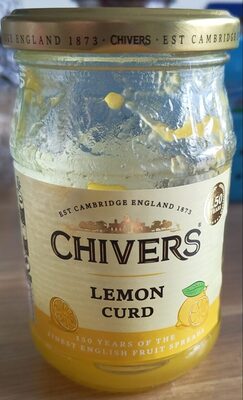
Barcode: 5098732004842
lemon curd
HALAL
📝 Reason: All ingredients listed are generally recognized as Halal. No Haram or Doubtful ingredients were found in the product. The product does not contain any meat or alcohol, and there are no E-codes from the Haram or Doubtful lists present.
📄 Certificates: None
Ingredients:
Details
Understanding the Halal Status of Lemon Curd
Lemon Curd, a delightful spread often enjoyed on toast or as a dessert topping, has gained popularity in recent years. However, for those following a halal diet, it’s essential to understand whether this tangy treat fits within their dietary guidelines. Fortunately, Lemon Curd is classified as halal, and this article will explore the reasons why.
Ingredients Overview
The primary ingredients of Lemon Curd typically include:
- Citronensäure (Citric Acid)
- Essigsäure (Acetic Acid)
- Pektine (Pectin)
- Natriumcitrate (Sodium Citrate)
- Carotin (Carotene)
- Ascorbinsäure (Ascorbic Acid)
All these components are generally recognized as halal. There are no haram or doubtful ingredients found within the product, making it a suitable option for individuals adhering to halal diets.
Examining the E-numbers in Lemon Curd
In our detailed inspection, we will delve into each E-number ingredient to affirm its halal status:
- E330 – Citronensäure (Citric Acid)
Recognized as halal, citric acid is mainly derived from citrus fruits and is widely used as a preservative and flavor enhancer. - E260 – Essigsäure (Acetic Acid)
This compound is another halal ingredient, commonly used in food products as vinegar. It provides tartness and acts as a preservative. - E440a – Pektine (Pectin)
Pectin, derived from fruits, is widely used as a gelling agent in foods such as jams and jellies. Its halal status is well established. - E331 – Natriumcitrate (Sodium Citrate)
This salt of citric acid is considered halal and is often used to control acidity and enhance flavors. - E160a – Carotin (Carotene)
Carotene, a natural pigment found in plants, is also halal, used mainly for coloring purposes in food. - E300 – Ascorbinsäure (Ascorbic Acid)
More commonly known as Vitamin C, this antioxidant is recognized as halal and is frequently included in food products to prevent spoilage.
The Halal Certification Context
While there are no specific halal certifications associated with Lemon Curd, the absence of any haram ingredients provides strong assurance that it is suitable for consumption. The ingredients used in Lemon Curd do not derive from any animal sources that would typically render a product non-halal. Additionally, none of the E-numbers associated with Lemon Curd are present on the lists of doubtful or prohibited items in the halal dietary guidelines.
Conclusion
If you are a fan of Lemon Curd, you can enjoy it without concerns regarding its halal status. The ingredients are not only delicious but are also safe within halal dietary rules. With the current trends towards healthier eating and clean labels, knowing the contents of what you eat is more crucial than ever. Lemon Curd stands out as a delightful choice that adheres to halal standards, ensuring that you can savor its zesty flavor with peace of mind.

